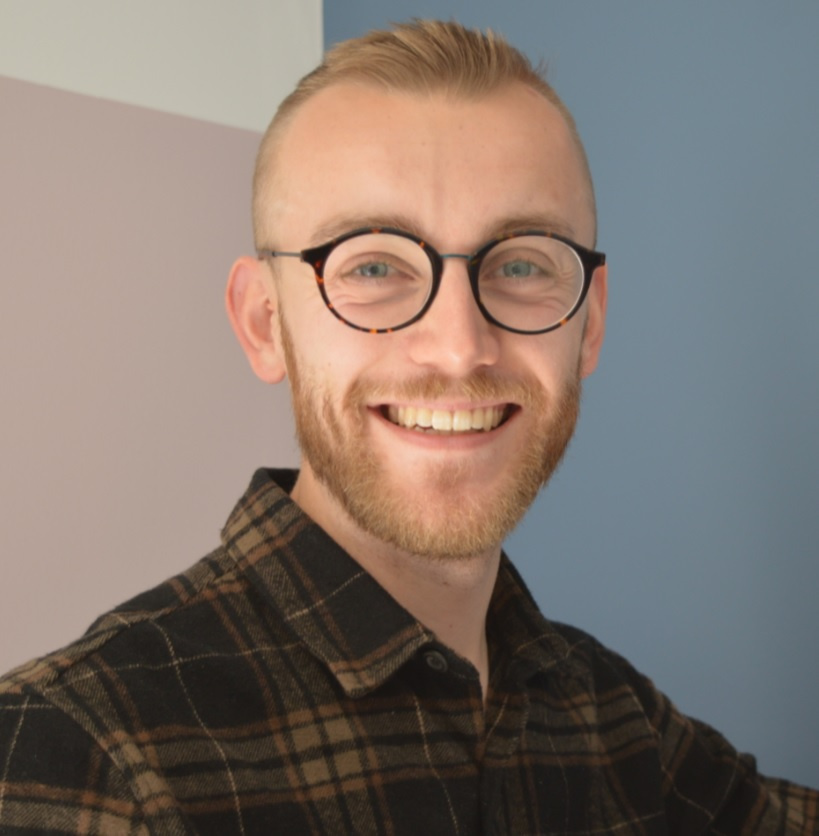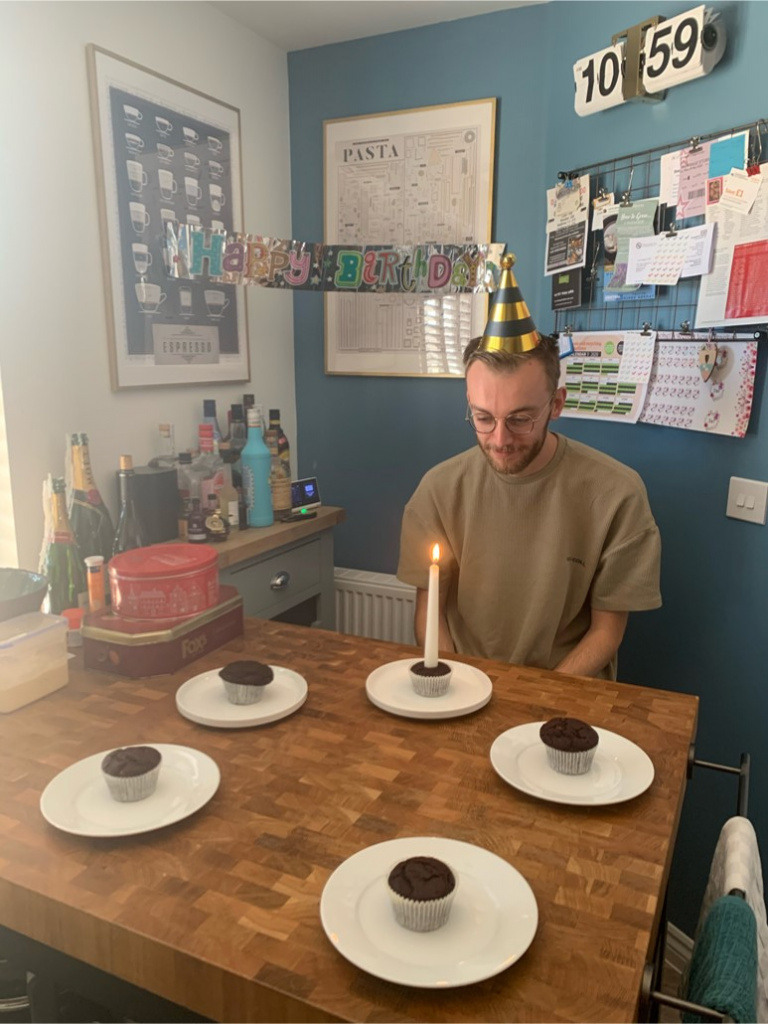Going places! Adam Mills

Last month, the MRS announced the new leadership team for their network of young researchers; &more. To celebrate that news, I caught up with Adam Mills, Brand Strategy and Planning Insight Manager at BT and one of the newest members of the team! Adam is extremely honest about his career in market research, and has some practical tips for commissioning more inclusive and diverse projects – amongst other brilliant advice!
Adam, I’m absolutely thrilled to be interviewing you as part of my column for Significant Insights! So, shall we dive right in and hear about how you got into the industry, and how you got to this point?
To be honest, I fell into market research a wee bit…As a kid, all I wanted was to be a journalist, and tell amazing stories to big audiences. I wanted to go and study journalism, but ballsed up my A-Levels, so I missed my grades – but not wanting to give up, I decided to take a year out, get my grades, and then find myself a job to get some experience (and let’s be honest, to make sure I had plenty of beer money).
So that’s what I did – and I got incredibly lucky that the job I found was in a marketing function at a small French start-up in London. I fell head over heels with what marketing could do – it was the perfect blend of things that made me tick. I decided that was probably the industry for me after all (especially after I found out what the starting salary for a fresh-faced journalist is…), and my amazing boss put me in touch with other start-ups to allow me to get more experience whilst I studied and to round out my skills. I worked a full-time consulting job throughout my full-time journalism degree (I think I’m still tired from it…), but it meant that when I graduated, I had enough experience to get myself a new gig.
I headed up UK marketing for a company in London, but as my role became more and more data-driven, I transitioned into a global insights role, leading out on business strategy. That then gave me an opportunity to shift over to Tesco, leading marketing optimisation, before journeying on to BT four years ago to look after digital brand performance. My roles over the past five years had become more and more research-driven, and I was loving the fact I was hearing directly from customers and consumers, so for me, the most logical move for me was to take the plunge and move into a ‘formal’ research role. And I’ve not looked back!

What’s one thing you didn’t expect when starting out in market research?
Honestly? The impact great research can really have on a business. Spending so much time on the other side of the fence, I’ve been in the position where research hasn’t told me what I wanted it to, and I was *that guy* who would push it back or bury it. But great research, that takes stakeholders on the journey, and delivers an incredible story, can truly win hearts and minds. It’s genuinely what gets me up in the morning.
What are three qualities you think every great young researcher needs or should aim to have?
Oh, that’s a good question! Confidence is the big one – if you don’t believe in what you’re sharing, your audience won’t, either. You’ve been asked to run some work and you’re in the room because you’re the expert – believe in yourself and know that you deserve that seat.
But I’d also call out storytelling and narrative building, too – I mentioned it earlier, but it’s all about hearts and minds. You’ve got to boil weeks and weeks of work down into 30 slides and a 45-minute debrief – you need to make sure you take your audience with you on that, and allow them to feel involved and to know what they need to do.

It’s an extremely important topic, so I’d love to know if you have any advice for client-side researchers on how to ensure the research they commission through their agencies is inclusive and accessible?
We can – and should – all be doing more to ensure our research is diverse, inclusive, representative and accessible. I’m definitely not an expert in this field, but I’m a firm believer that we should all be doing more, and we should be actively encouraging inclusivity and accessibility at every stage of the research process (as well as being advocates within our businesses).
From a commissioning point of view, there’s a few things we ask of our agencies – any agency partner we work with all agree to our internal diversity and inclusion policy, and the vast majority have committed to the MRS Inclusion Pledge, which ensures that not only is their research outputs and practices representative, but so are the make-up of their workforces. It’s so important to me that the teams we work with take this as seriously as we do.
However, pledges are all well and good, and are a fantastic starting place for this conversation, but we have to put them firmly into practice. From my perspective, I’m pushing all the agency partners I work with to rethink how we recruit to ensure we’re truly representative of our society, and I’m trying to make sure that we, as a client-side research team, as well as all our agency partners, think about inclusivity and accessibility as second nature.
Let’s be honest, how many of our fellow researchers think about whether or not the survey platform they’re inputting their stim into conforms to digital accessibility standards? How many pieces of research do we run that we believe are ‘NatRep’ but underrepresent huge swathes of our audiences and cohorts? How many of us recruit our focus groups to not only be representative, but also that they take place in truly accessible locations in rooms that cater to diverse needs? How many of us stop and think to ensure that our research is fair, equal and truly representative of society, both from a diversity and inclusion point of view, but also an accessibility perspective?
There’s a lot of work to do – and I’d like to think that with the incredible advocates and voices we have leading the charge with this in our industry, we’re going to be taking some huge steps forward over the next few months. But it’s going to take us all – we all need to play our part to make sure our research standards and requirements are equal, diverse, fair and representative of our society, and can be accessed by all.
Now you’ve spoken a bit about being a trained journalist, so what do you think our industry could learn from the world of journalism?
Haha, a fiver if you can guess what I’m about to say…?!
Storytelling. We as researchers should all be able to tell a fantastic story and know our sources inside out. We should be comfortable with shouting our debriefs and our exec summaries from the rooftops. We should be as excited by letting the cat out of the bag at the end of the project as we are when we hear the initial brief.
But I’d also say that less is most definitely more. Our data and research can work hard to tell a story – nobody wants to see 50 slides of charts, in the same way you rarely see 15,000 word articles in newspapers. Attention spans are basically non-existent (especially after the last 12 months), so you’ve got to get things across as quickly and efficiently as physically possible. Headline writing from a journalistic point of view is a real skill – and that’s very true of researchers, too.

And, finally, do you have anyone who has helped your career so far that you would like to acknowledge and say thanks to or give a shout out to?
So many people. I’ve been lucky enough to work with some bloody brilliant human beings, who have all gone above and beyond to help me with my career, and to help me grow and flourish.
I had a bit of a crisis of confidence after a particular horrendous experience in a previous role, but when I joined BT, Gregor Young, Georgie White, Alison Bannister and Duncan Rutherford all helped me to rebuild, take stock and to get myself back and fighting fit. They helped me to open my eyes to what I could achieve, rather than what I was told I would achieve, which gave me a platform to build on. I’ll forever be grateful for their help.
But there’s one very special person who helped me get this far: Ilana Fox was my first boss, who helped guide and coach me to be the best I can be, who helped open doors for me because she believed in me, and has always been the perfect soundboard. She may have been a colleague but was always an incredible friend first and foremost, and that’s since transitioned to us bickering endlessly about the most ridiculous things like siblings. She’s been the driving force behind my career thus far – I couldn’t have got here without her.